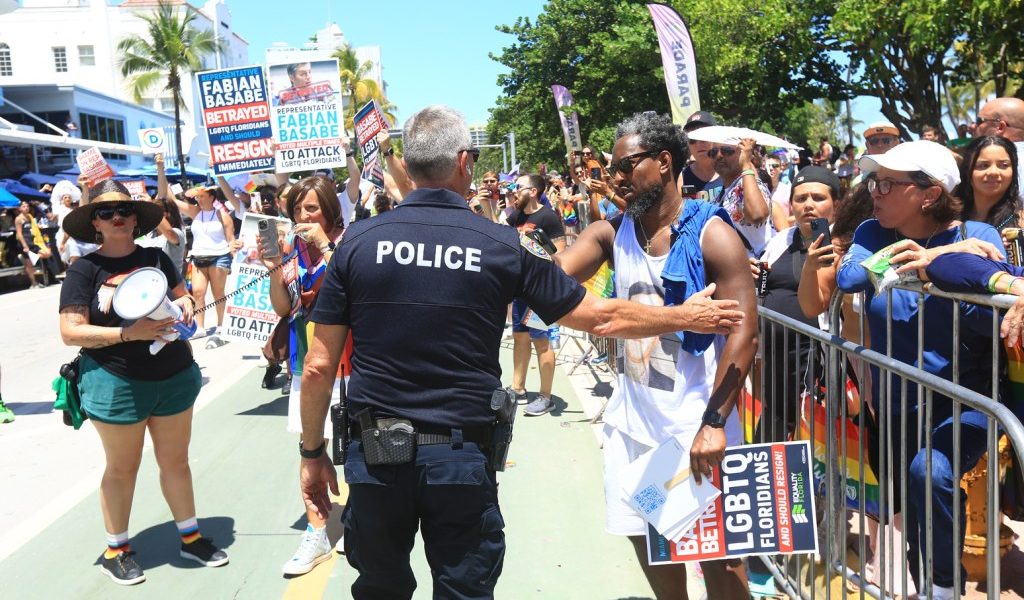A federal appeals court has upheld an injunction that effectively prevents Florida from enforcing a controversial law aimed at curtailing drag shows within the state. This ruling emphasizes the likelihood that the statute infringes upon First Amendment-protected free speech rights, which are fundamental to American democracy. The decision serves as a critical reminder of the importance of protecting various forms of artistic expression and performance art under the law, particularly in a diverse cultural landscape where such performances are increasingly common.
On May 13, a detailed opinion was published by the Eleventh Circuit Court of Appeals, where two out of three judges agreed to maintain a district court’s injunction blocking Florida’s so-called Protection of Children Act. This law was initially designed to prevent minors from attending what state officials categorized as “lewd” live performances in public venues like restaurants and bars. Notably, Governor Ron DeSantis and other state lawmakers have specifically highlighted drag shows in their public discussions regarding this legislation, showcasing the law’s targeted nature.
In a significant ruling in 2023, a federal judge ruled in favor of the popular restaurant chain Hamburger Mary’s, determining that the law is excessively broad and, consequently, violates free speech rights. This sentiment was echoed in the recent ruling where appellate judges, Robin S. Rosenbaum and Nancy G. Abudu, concurred with the lower court’s findings, reinforcing the notion that laws must be clearly defined to avoid infringing on constitutional rights.
Judge Rosenbaum, writing for the majority, articulated that the law’s vague language regarding prohibited performances creates an overly broad interpretation that undermines the precision afforded by the First Amendment. She noted that the statute is akin to using a shotgun when the First Amendment only permits a more refined approach to regulation, emphasizing the need for specificity in legal texts to protect artistic expression effectively.
The ruling issued on Tuesday ensures that the injunction established in 2023 will remain active for the duration of ongoing litigation concerning the Hamburger Mary’s case. This means that Florida cannot currently enforce the controversial law while the lawsuit proceeds. Although the discovery phase of the case has concluded, a trial date has yet to be established, prolonging the uncertainty surrounding the law’s future.
“Obviously, we’re thrilled that the injunction is going to remain in place for the duration of this litigation,” stated Melissa Stewart, an attorney representing Hamburger Mary’s, in an interview with Billboard. “This ruling ensures that the citizens of Florida will retain their First Amendment rights while we continue to litigate this important case that impacts artistic freedom.” Her comments highlight the significance of maintaining constitutional protections in the face of legislative attempts to restrict them.
As of now, representatives from the state of Florida have not responded to inquiries regarding this ruling. Their silence raises questions about the state’s future approach to this contentious issue and whether further legal action may be forthcoming in response to the court’s decision.
Under First Amendment law, governments have the authority to limit “obscene” speech; however, such restrictions can only be applied when the speech in question is considered “patently offensive” and appeals to a “prurient interest,” lacking any substantial artistic or political value. This delineation serves as a crucial standard in determining what constitutes protected speech versus what falls outside those protections.
The majority opinion from the Eleventh Circuit contends that because Florida’s statute broadly targets an undefined category of “lewd” performances, it poses a risk of stifling a wide range of constitutionally-protected expressions that do not meet the stringent criteria for “obscenity.” This could potentially lead to a chilling effect on artistic performances statewide, raising concerns about censorship.
The court’s opinion highlighted a previous incident in Florida where an enforcement agency revoked the liquor license of a venue after labeling a performance by a drag artist known as “Jimbo” as “lewd.” In this particular performance, Jimbo mimicked childbirth with a pile of baloney, a routine that the court pointed out might be considered “odd,” yet it clearly does not meet the standard of being deemed “obscene” under existing laws.
The ruling emphasized that while Jimbo’s performance might not resonate with everyone due to its eccentricity, it nonetheless lacks the qualities necessary to classify it as “obscene” and therefore should not be subject to the law’s prohibitions. This distinction underscores the necessity for legal frameworks to differentiate between personal taste and constitutionally protected expressions.
Judge Rosenbaum pointed out that the legislative intent behind the act, particularly the mention of targeting events like “Drag Queen Story Time,” illustrates the potential overreach of the term “lewd conduct” within the statute. She remarked, “Of course, one legislator’s interpretation of the act does not an authoritative construction make. But it does betray how much protected speech may fall within the act’s scope.” This comment reflects concerns over the law’s vague language potentially encroaching on artistic freedoms.
In contrast, Judge Gerald Bard Tjoflat of the Eleventh Circuit delivered a dissenting opinion, arguing that the majority’s interpretation of the statute is excessively broad. He posited that, even if there are ambiguities within Florida’s statute, the appropriate response should involve requesting clarification from the Florida Supreme Court rather than entirely blocking the law’s enforcement, indicating a divide among legal interpretations within the court.
Florida represents one of several states with Republican leadership that have enacted laws aimed at restricting drag performances in recent years. Notably, a similar law in Tennessee faced a legal blockade in 2023, yet the Sixth Circuit Court of Appeals ultimately reinstated it a year later, demonstrating the complex legal landscape surrounding these types of legislation across the United States.

Here you can find the original article; the photos and images used in our article also come from this source. We are not their authors; they have been used solely for informational purposes with proper attribution to their original source.



